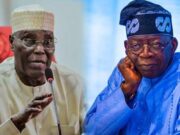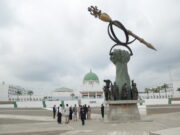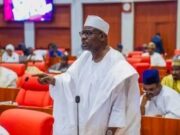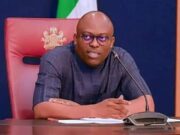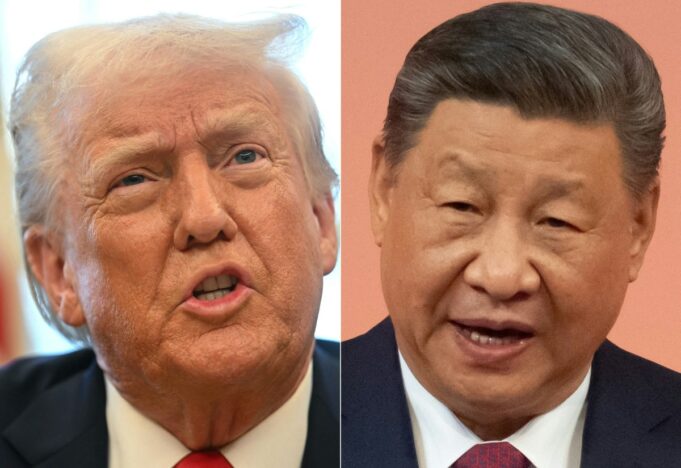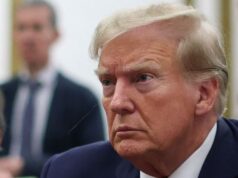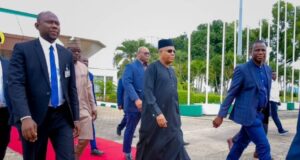In a move suggesting renewed willingness for economic dialogue, China on Wednesday declared its readiness for trade negotiations with the United States, following President Donald Trump’s remarks hinting at a potential reduction in tariffs on Chinese goods.
Speaking at a press conference in Beijing, Chinese Foreign Ministry spokesman Guo Jiakun said, “China pointed out early on that there are no winners in tariff wars and trade wars. The door for talks is wide open.”
The announcement came a day after Trump, who returned to the White House in January, indicated that tariffs—currently at 145 percent on many Chinese imports—would “come down substantially.”
These tariffs were first introduced in response to China’s alleged involvement in the fentanyl trade and what Washington termed unfair trade practices.
Trump admitted the current tariff level is “very high,” adding, “They will not be anywhere near that number” but clarified “it won’t be zero.”
He emphasized, “Ultimately, they have to make a deal because otherwise, they’re not going to be able to deal in the United States.”
Chinese President Xi Jinping also weighed in, warning that escalating trade tensions could disrupt the global economy.
According to state media, Xi said trade wars “undermine the legitimate rights and interests of all countries, hurt the multilateral trading system and impact the world economic order.”
US Treasury Secretary Scott Bessent echoed this sentiment during a closed-door event on Tuesday. According to an attendee, Bessent characterized the current trade climate as a “reciprocal trade embargo” and anticipated that a de-escalation was likely.
He also noted the reassurance such a shift could bring to nervous financial markets.
Trump further addressed market concerns by clarifying his stance on US Federal Reserve Chair Jerome Powell.
Dismissing speculation of an impending dismissal, Trump stated, “I have no intention of firing him,” though he urged Powell to act more decisively. “I would like to see him be a little more active in terms of his idea to lower interest rates — it’s a perfect time to lower interest rates. If he doesn’t, is it the end? No.”
Markets responded positively. Wall Street indices surged following reports of Bessent’s remarks, while Asian stocks, including Hong Kong and Tokyo, each posted gains of around two percent.
Gold, which had recently hit record highs as a safe-haven asset, retreated slightly in response to the optimism.
Bessent also underscored the need for economic balance in China, stating that the intention of US policy is not to sever ties with Beijing.
He noted, however, that container traffic between the two countries had declined amid rising tensions.
White House Press Secretary Karoline Leavitt reinforced Washington’s optimism, telling reporters that the US was “doing very well in respect to a potential trade deal with China.”
Amid the ongoing spring meetings of the International Monetary Fund and World Bank in Washington, finance ministers and central bankers from around the world are closely monitoring developments in the US-China trade landscape.
Meanwhile, diplomatic outreach by China continued, with Foreign Minister Wang Yi speaking with his British and Austrian counterparts, calling on the UK and EU to collaborate with Beijing in protecting global trade systems.
Japan also appears to be taking proactive steps, with reports suggesting that a second visit to Washington by tariffs envoy Ryosei Akazawa is in the works.
Tokyo may offer new concessions in a bid to ease rising tensions.


